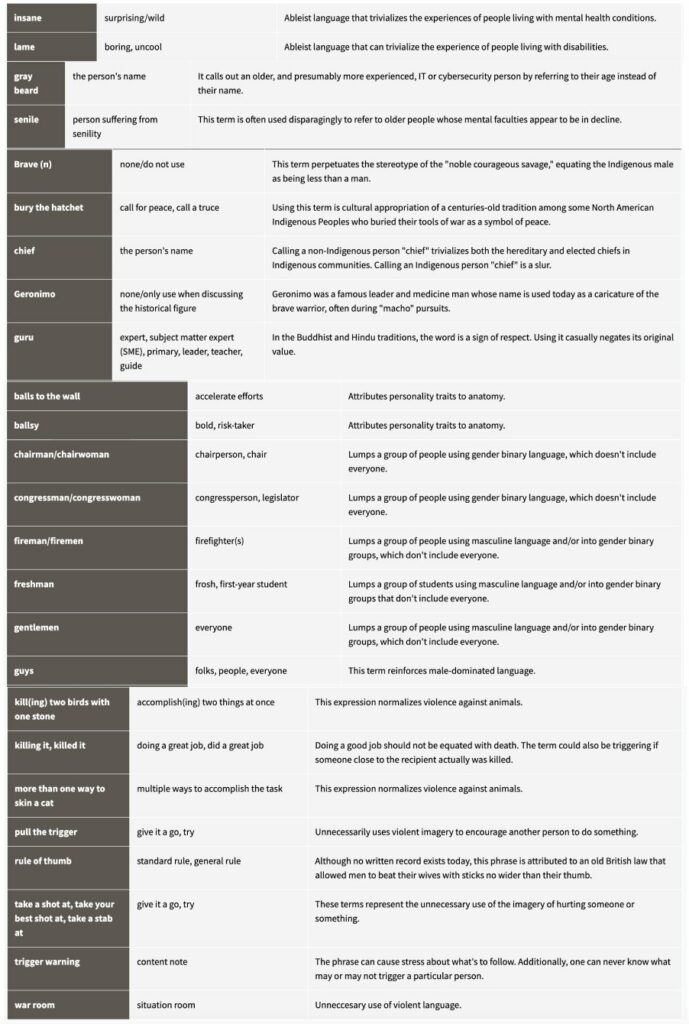What a joke! Not the words but the idea that the purpose of the university is to make people comfortable and to prevent them from encountering words they might not agree with and then to do it all in the name of free speech. But free speech is the exact opposite of this -- it is the right that protects those who say things unpopular or deemed offensive (at least for now). Think of all the good things in the past that were once deemed hurtful or offensive that have now become important assets in the fuller life of people. Think of how the control of such speech inevitably leads to the censorship of what is said by people in the name of protecting us from what might be deemed harmful speech. Then think of how easily much of what we proclaim in Christian doctrine and truth could fit under the banner of that which is offensive or uncomfortable.
There is such a shortage of common sense today that this will inevitably become normative not only at the university level (traditionally a place where such foolishness is fostered and encouraged) but in every aspect of our life and community as a people and as a nation. Of course, the hidden problem here is not simply what offends or what is found harmful but WHO gets to decide that. Christians were once told to get over the offense of a crucifix in a bowl of urine passing off as art. It has been a long time since anyone was concerned about any offense or harm done to Christians or churches. Now the same vat of urine with its blasphemous desecration of the crucifix has become normative in a world where the only people who are supposed to have thick enough skins to handle it are Christians. Everyone else is a victim looking for someone to accuse of offending them.
Here’s a list of the words:

1 comment:
According to a January 8, 2023 \i{Stanford Daily} article, "University removes ‘Harmful Language’ list following backlash":
Stanford’s Elimination of Harmful Language Initiative (EHLI) website was taken down Wednesday after what the University described as “intense recent feedback” that the list was “counter to inclusivity,” according to a public statement from Chief Information Officer Steve Gallagher.
An effort co-sponsored by the Stanford CIO Council and the People of Color in Technology (POC-IT) affinity group, the EHLI was published in May with the intent of identifying and suggesting alternatives to discriminatory terms used in IT. According to the guide, the suggestions were in line with those used by “peer institutions and within the technology community” and did not represent University policy, mandates or requirements.
The list was met with widespread backlash in December, with criticism kicking into high gear after The Wall Street Journal published an article signed by its editorial board ridiculing entries in the list such as “American,” “master” and “blind study.”
Post a Comment